World-schooling Subjects Explained (Travel-Friendly, Parent-Friendly and Affordable)!
This is a detailed guide to successfully select your world-schooling subjects. They must be travel-friendly, parent-friendly and affordable! Here is how.
Before we started traveling full time, our kids were used to a world-order. A world order we were about to turn upside down!
Now, well into year 5 of homeschooling, we have found a great combination of world-schooling subjects, which I am excited to share with you.
We still try different approaches and curricula. It is an always evolving and improving journey, because our children are also growing and changing (I’d say improving too, but that one raises the bar too high for us – the parents).
Be sure to look at all aspects of world-schooling – cost, curricula, socialization, and more, at our page:
Traveling with Kids – Sailing Graceful (notextingandtacking.com)
All of our world-schooling subjects must be:
Our curricula and subjects must fulfill the three requirements above, as much as possible. This helps everyone get the most out of traveling and world-schooling, without too much drama and stress.
LINKS to all subjects and curricula we use – in the large table at the end of the post!
Travel-friendly
Every subject we cover must be easy to take along on our journey. While traveling by boat, we were a bit less strict about what we brought aboard, because we did have the space.
Once we started flying between different countries, as well as driving around, travel-friendly quickly moved to the top of the list. We did have to modify some of our existing subjects and supplies, and I will cover each in better detail below.
To be travel-friendly, the subject / curriculum must be either online, easily downloadable, or available as a PDF.
Parent-friendly
Parent-friendly means that either I or my husband must be proficient in the subject, or with sufficient skills and interest, so that we can assist the kids as needed.
When we cannot (or prefer not to) devote the time and effort to teach a subject, parent-friendly means as little parent involvement as possible!
Homeschooling and world-schooling are not parent-schooling. There are so many resources and options to choose from, that it is virtually impossible to not find a resolution, an answer, or an understandable explanation to any question, on any subject!
We must learn how to guide our children. Our children must learn how and where to look for answers themselves. We do not need to be the teachers. It is liberating and helpful to realize this.
Affordable
While traveling, we are either on a very tight budget (while sailing), or we tend to spend a lot (flying, accommodations, meals).
Packaged all-in-one curricula tend to be more expensive and harder to alter, if needed. We have never used one.
I have an entire post on ways to make world-schooling affordable:
World-schooling is Affordable (Which is why we do it)!
For a subject to be affordable, it means we must be able to afford it. This is very subjective, and what works for us, might not be an option for you (but it most likely will be).
For the subjects, which are not free, I have done extensive research to ensure we are using the best combination of quality and price. Some other options might be better, but also cost a lot more.
We also try to encourage our children to explore and develop their talents and interests. That might mean spending more money on a subject or hobby they are passionate about and selecting an easier and cheaper option for another subject.
Core subjects
Most resources out there, as well as all public schools divide the subjects into core (essential) subjects and electives. We follow the same model (especially now that we have two highschoolers).
For the first year of our travels, we mostly covered math and reading. As we traveled by boat, many of the new skills quickly found us all! Electives have been quite diverse and plentiful to add along the journey!
Math
We have tried several different math curricula, and have found a combination, which works great for us.
| Travel-friendly | Parent-friendly | Affordable | |
| Math Mammoth – up to Algebra | * PDF version * No internet needed | * No teacher manual needed * Well-explained concepts and videos | * Less than $50 * Reprint for siblings |
| Mr. D Math – Algebra and beyond | * Fully online * Downloadable | * Low/no parent-involvement * Computer-graded tests * Access to real teachers, if needed * Guiding videos | * Self-paced – $197/subject/year |
| Supplement – Khan Academy | * Fully online * Downloadable* | * Low involvement * Easy to check progress | * Free |
Our kids are not in love with math, but they do understand it, so I tried to select a bit more challenging curricula, focusing on concept-mastery, rather than using a spiral approach.
Both my husband and I like math, so helping the kids has not been a problem yet.
For math curriculum, I looked for something closer to Singapore Math, but not as teacher-intensive, and I stayed away from the Saxon Math approach.
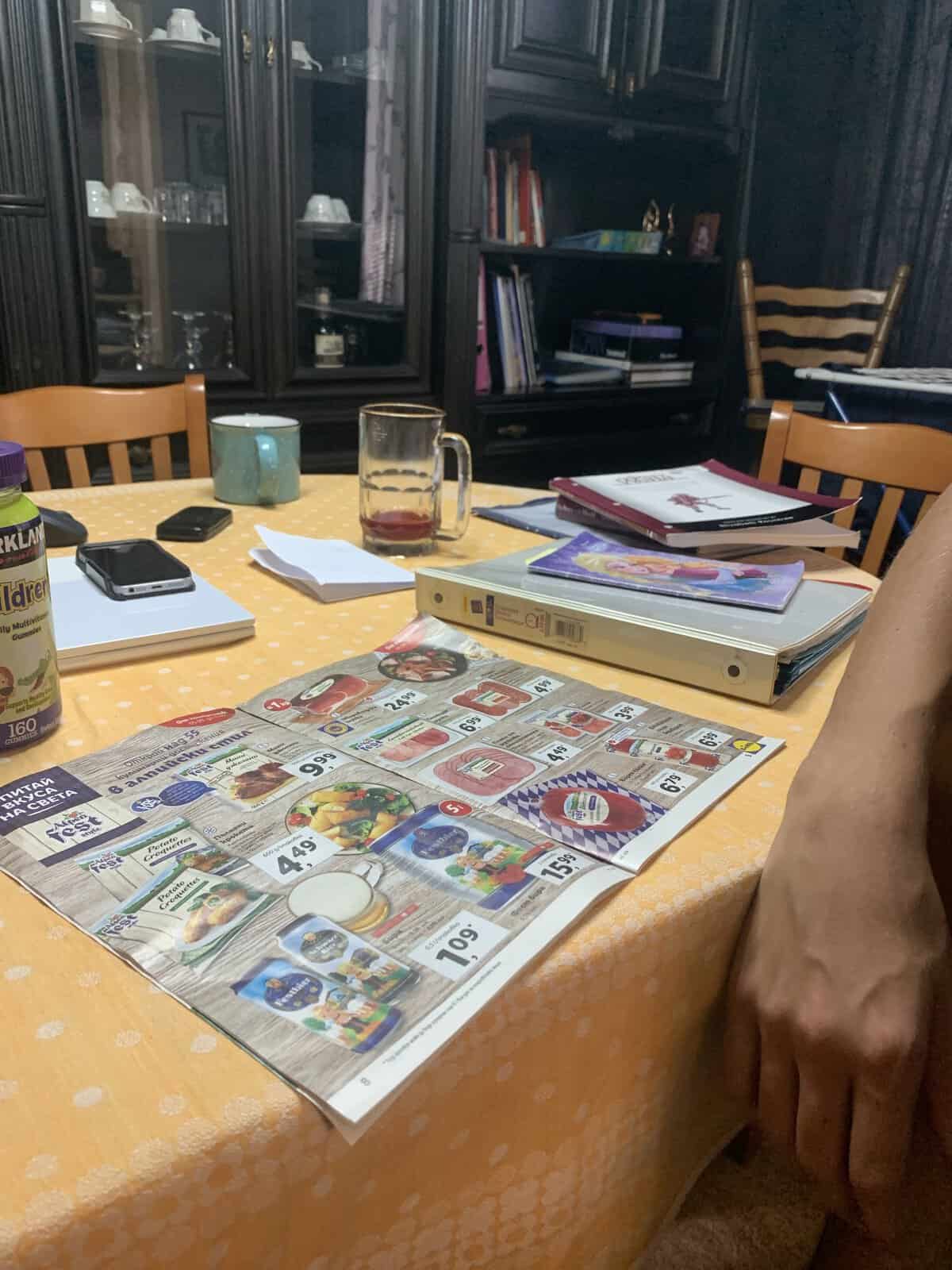
We use Math Mammoth with everyone until Algebra 1 (because it only goes until Algebra).
Great for traveling, because the workbooks and tests are all PDF. We just print a few pages at a time, when we travel, and then throw them away once completed.
The materials can be copied for all kids within the same family – for three kids that saves a lot of money!
For Algebra and beyond, we use Mr. D Math and I love it, because I have no clue what it is, and the kids understand it! This means hands-off for this busy mama!
We buy the self-paced version of Mr. D Math, which is excellent for travel. One great feature of this curriculum is access to the teacher via e-mail any time the children have questions (yes, even the self-paced version). And the teachers have been very responsive!
Another great option for traveling is Khan Academy, but we use it only as a supplement, or a different way of explaining a concept. Khan Academy is free, so hard to beat that!
Tip: Find a sample lesson from each of the curricula you are thinking of using and sit down with your child. See what they think about it. If they equally hate them all (a likely and common scenario) – you pick!
Language Arts prior to High School
We use various combinations of all of these, on different days of the week.
| Travel-friendly | Parent-friendly | Affordable | |
| Reading The Gutenberg | * Downloadable books * Lots of resources and study suides online | * Moderate parent involvement * Well-organized weekly schedules | * Free books |
| Easy Grammar – Daily Grams | * PDF available | * High parent involvement * Great method | * $29.95 |
| Dictations | * Resources always available | * High parent involvement * Easy to check progress | * Free |
| Grammar – Editing | * PDF’s | * Moderate involvement | * Free |
| Writing – IEW | * Can be, if modified | * Very teacher-intensive. * Great method | * not really |
| Writing – Journal | * Buy a small notebook | * Ideas and prompts | * $0.20 notebook |
| Writing – essays | * Online charts avaiable | * Parent-intensive | * Free |
It might look like a lot, but we do not cover everything, every day. Some days we only do dictation and grammar, others – writing. Reading happens all the time.
I have a degree in English philology, which makes teaching very easy for me (I usually do not need a teacher’s guide). Having said that, I prefer NOT to teach High School English (more on that below).
With Easy Grammar, we only use the Daily Grams student version with brief explanations. We combine these with editable, printable worksheets via Allinonehomeschool.
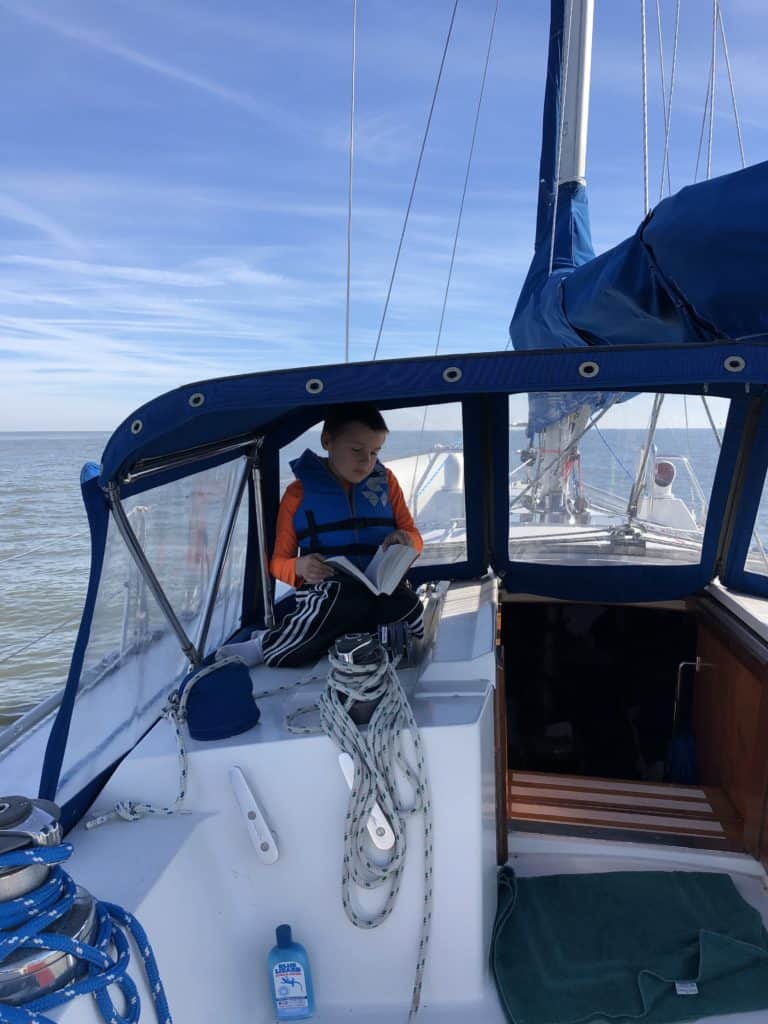
We do not teach spelling but do dictations three-four times per week. This is how I learned English (it is a foreign language for me), and I rarely use autocorrect, but I cannot ever enter a Spelling Bee contest. Dictations work great – just a different approach to spelling, that’s all.
Writing is mostly done in the form of journaling. Again, in a skinny notebook, the kids write down whatever they wish, at the end of each day. Once per week (when we remember), we ask that they share their journal entry with us, so that entry is typically done with a bit more effort.
The IEW program came to me free, from a friend, so I gave it a try. I loved the approach for some basic principles, which can then be applied to any writing assignment. We did IEW for a year and then donated it.
For reading options, we have used recommended books via Ambleside Online (downloaded from the Gutenberg Project). Almost all of their books are older classics, which are often free on Kindle and available in libraries!
I did need to read some of the books aloud, because our boys have little patience for page-long sentences! But we prefer that to books on tape.
English – during high School
Export the English and Literature, if you can! I’ll tell you why below.
| Travel-friendly | Parent-friendly | Affordable | |
| English – St. Athanasius Academy | * somewhat | * very | *$430/year |
| Essay Writing – online charts and practice | * very | * high involvement | * Free |
I have the credentials, but no desire to teach my own kids, when it comes to English! Teaching English and discussing literature is best done in a class environment. There are too many variations and “right” answers when it comes to literary analysis.
Writing assignments are best not graded by mama! Comparing various writing assignments is best done in a group/co-op/class setting. Having said that, teaching the structure and basics of essay-writing can be done 1:1.
Our high-schoolers take synchronous online classes in English, via a US Homeschooling Academy – St. Athanasius Academy. The teachers there have been extremely helpful and supportive with our traveling schedules, and we have been able to find Wifi for some of the classes, while watching recordings of others.
At the current price of $430 for the entire year, for twice/week meetings, what more can I ask for! Remember – these are classes that cover all aspects of English – Reading, discussions and writing!
For our reading devices, we, like many other traveling families, use Kindle (the cheaper, black and white version). However, I much prefer paper books, so we end up buying a few used books, then we donate them to a local marina/library, and reduce our load as we travel.
Tip: Some libraries offer temporary library cards and have a small selection of books in English. We have used this option as well, but I am always worried about forgetting to return a book on time. Libraries make a perfect study space too.
Science
We have to be creative with science, because one of the curricula uses very heavy and large textbooks.
Dad helps with everything physics and astronomy related, mama is in charge of biology and chemistry. We do place great emphasis on sciences.
| Travel-friendly | Parent-friendly | Affordable | |
| Prior to High School – Apologia | * If modified | * well-explained text * high involvement | * easy to find used |
| Apologia Biology | * if modified | * easy for student to read alone * low parent involvement | * easy to find used |
| Apologia Biology Lab | * some | * high involvement | * supplies pricey |
| Conceptual Chemistry | * All online | * well-organized * low/no parent involvement * quizzes and tests online | * $115* |
| Conceptual Chemistry Lab | * some | * Moderate involvement | * yes |
We have used the heavy Apologia Books until (and including) High School Biology, because we did not have access to consistent internet, while sailing, and because someone gave them to us for free!
In order to make the heavy textbooks usable, while traveling, I take photos of the units we need.
Apologia Biology Lab can be expensive, if you buy a microscope, dissection kit and prepared slides. These, however, make a huge difference. There are YouTube videos of the experiments, but they are not a great substitute for hands-on experiments.
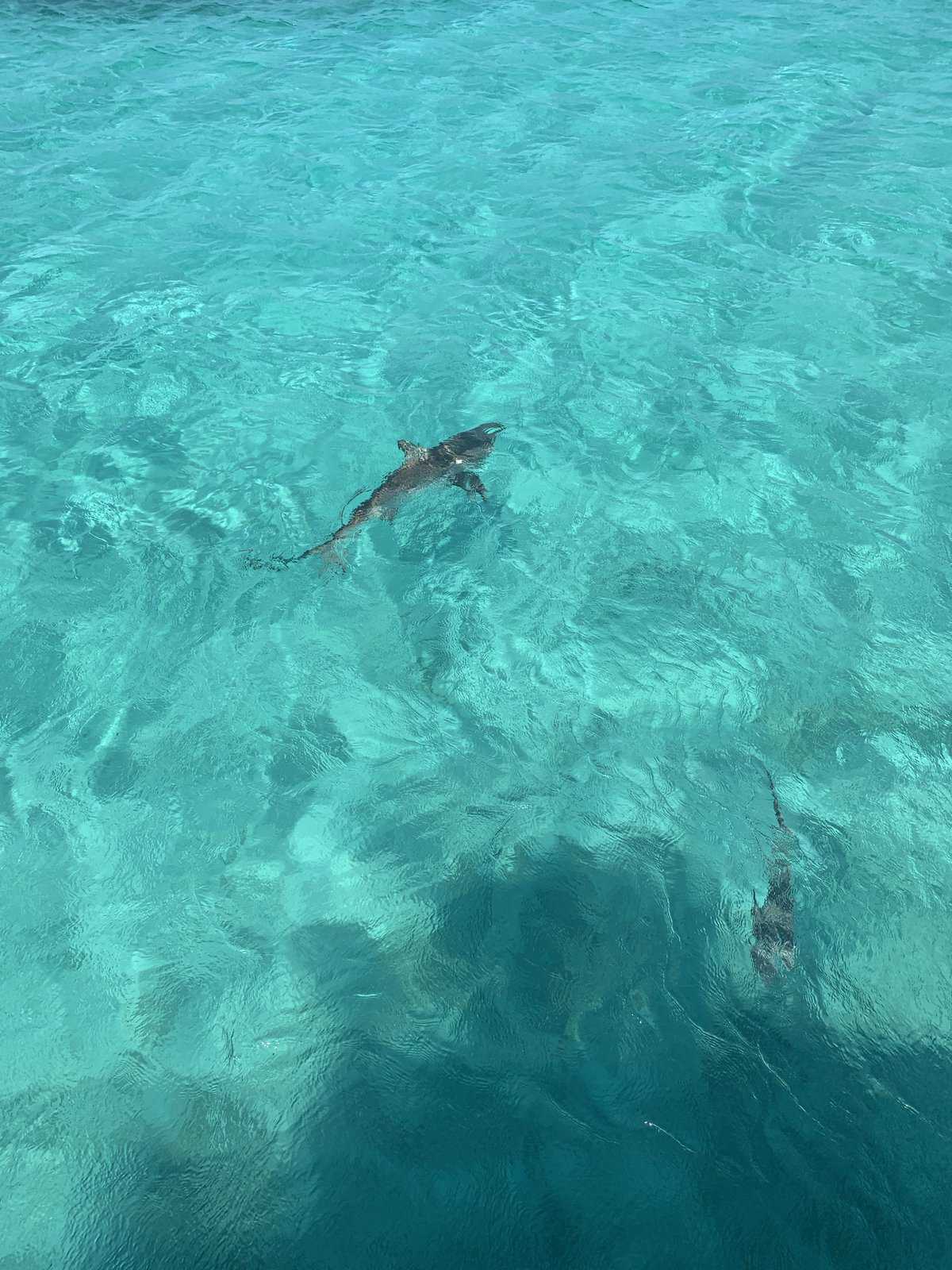
What works much better with traveling, however, is the Conceptual Science series. A great added bonus to this online platform, is that they have integrated the textbook as part of the online curriculum, so you do not need to buy any textbook separately!
Note: As of the date of this post, Conceptual Academy have not modified their statement in the FAQ of the need to purchase a textbook. We ended up buying one, only to find out that it was NOT needed, because they had integrated it into the online curriculum. We returned it and notified them to update their FAQ.
Conceptual Science courses combine reading with videos and online quizzes.
Tip: Performing experiments while traveling can be tricky. Instead, have a few days filled with experiments, once you are a bit more settled. This lab bootcamp fulfills the lab requirement and offers a chance to review something they already learned.
History and Geography
We have used a combination of books, online co-ops and online classes. We try to modify, depending on the places we visit.
| Travel-freindly | Parent-friendly | Affordable | |
| Exploration while traveling | * very | * very | * cost of travel |
| Story of the World | * if modified | * moderate | * around $20 |
| Arizona State University History | * all online | * very | * $25* |
| Streams of Civilizations | * not very | * moderate | * $35 |
| Seterra | * online app | * very | * free |
History and Geography are very easy to change around, based on your location. In fact, it would be silly not to tailor the studying to the places you visit!
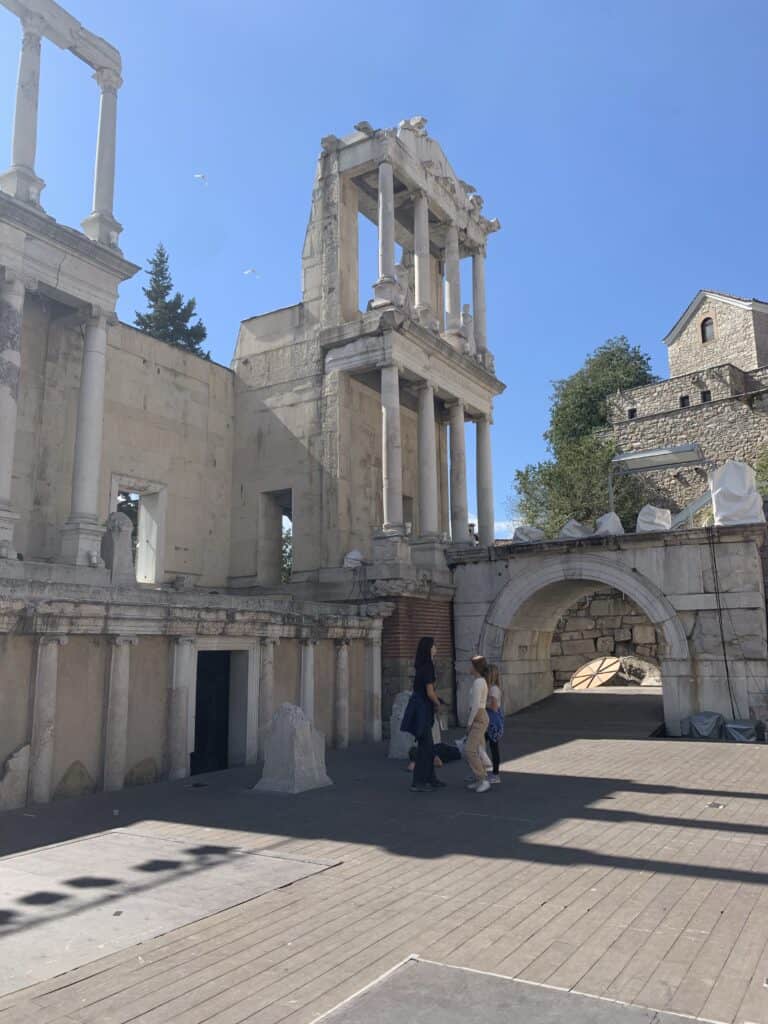
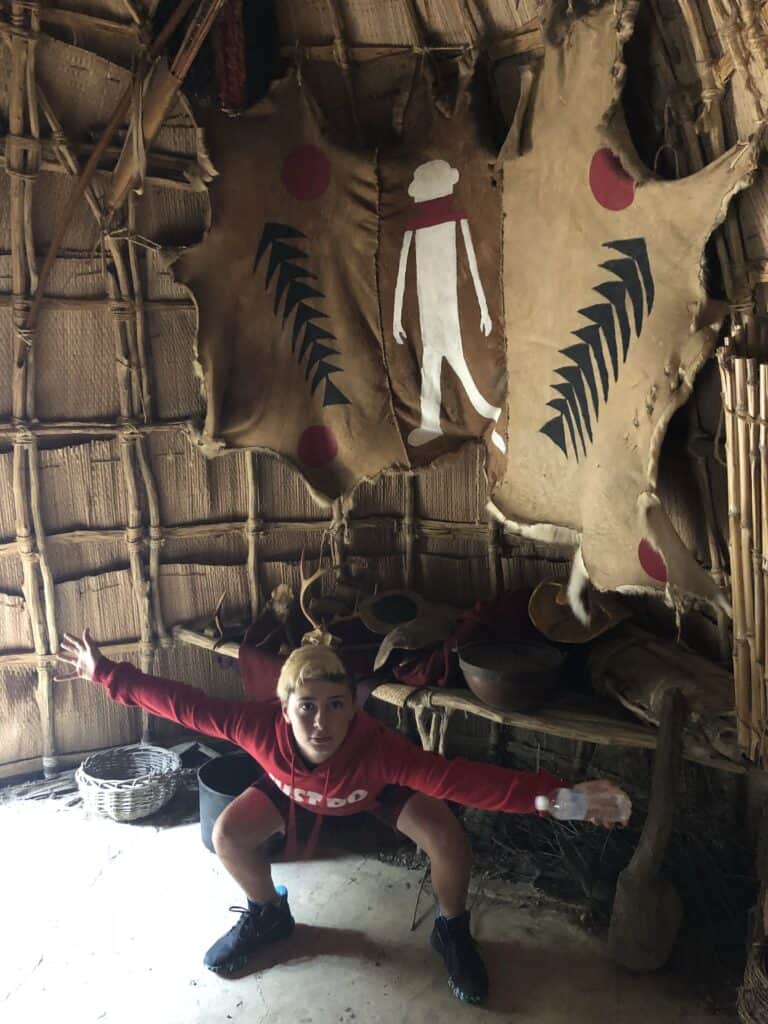
I have covered Arizona State University’s program below, under “Dual Enrollment”.
We do use Seterra, via a phone app, to do fun quizzes on countries, capitals, flags and so on, but as far as geography – again, the kids will learn a lot better about mountains, if they hike them, and about oceans if they sail them!
Electives
A few electives are standard and can certainly be modified for traveling. There are plenty of opportunities for hobbies and activities, which can be turned into electives. Below is how we turn our world travels and hobbies into world-schooling subjects:
Foreign Language
While language immersion is extremely useful, it is not enough to learn a language, much less to earn a high school credit for it.
| Travel-friendly | Parent-friendly | Affordable | |
| Foreign language by a parent | * very | * teacher-intensive | * free |
| Foreign language online | * very | * very hands-off | * varies |
If you are fluent in a foreign language, find workbooks (either paper, or online), as well as reading materials (all can be found online via various sources, including simple ads!). Naturally, since I am a native Bulgarian speaker, our first foreign language is Bulgarian.
As far as other languages – I have found that it works well to find some language class and sign up the kids. We do this in-person, if we are settled for longer. It is very easy to find online versions as well.
The most important part of learning a foreign language is interaction with others in that same language! That is why online groups, or in-person classes with other kids work well.
Tip: Search for online foreign language classes in other countries. The average price/hour in a language school, in Bulgaria, is around $5-6. Many teach in the native language, but can utilize English as well. One of our kids studied Spanish with only Spanish used in the classroom!
Religion
We create our own routine of readings, videos and, occasionally, online classes. Everything you may ever need is readily available online, so not carrying around books is not an issue.

Visiting monasteries combines history with culture and peace in a unique way.
We have all seen all the episodes of the YouTube show Be the Bee. In 5-6 min episodes, Steve gives very understandable responses to common questions. It is offered from an Eastern Orthodox perspective.
Tip: Comparing world religions via observing customs and visiting places of worship, where allowed, is one of those things you simply must take advantage of, while traveling.
Turn your travels into electives
There are at least a couple of electives that can be put together, based on the actual traveling experience.
While we lived on a sailboat, the kids learned so much about sailing and navigation, that I have no problem counting this as a high school credit (for those old enough for it).
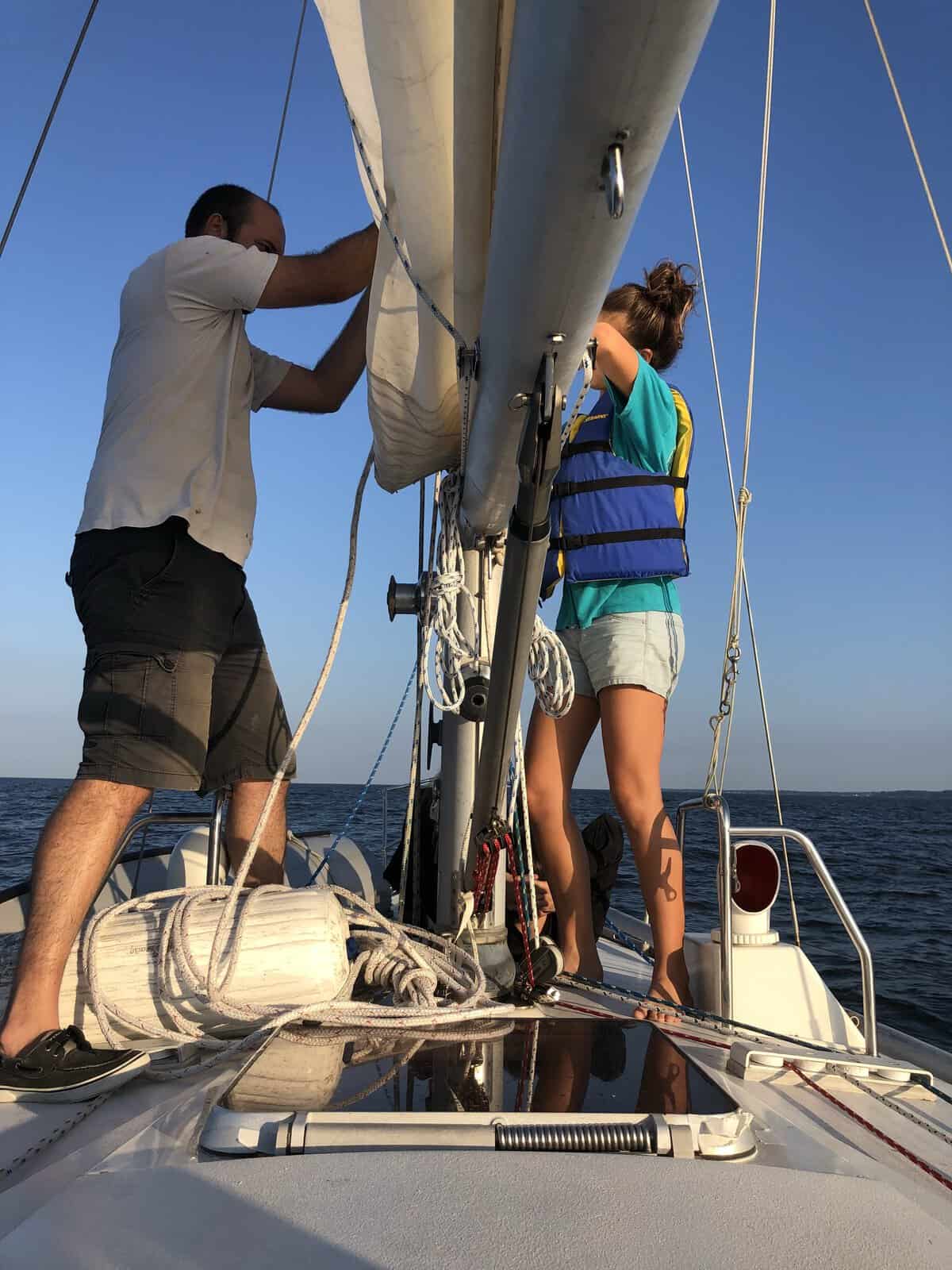
If you are traveling by bus, train, airplane, the kids can do a presentation on the various landscapes they have observed, wildlife, buildings, local clothes and costumes – there are many possibilities.
Such presentations and journal entries become part of their portfolio and can easily be attached to whatever subject you see fit – geography, culture studies, history, foreign language, etc.
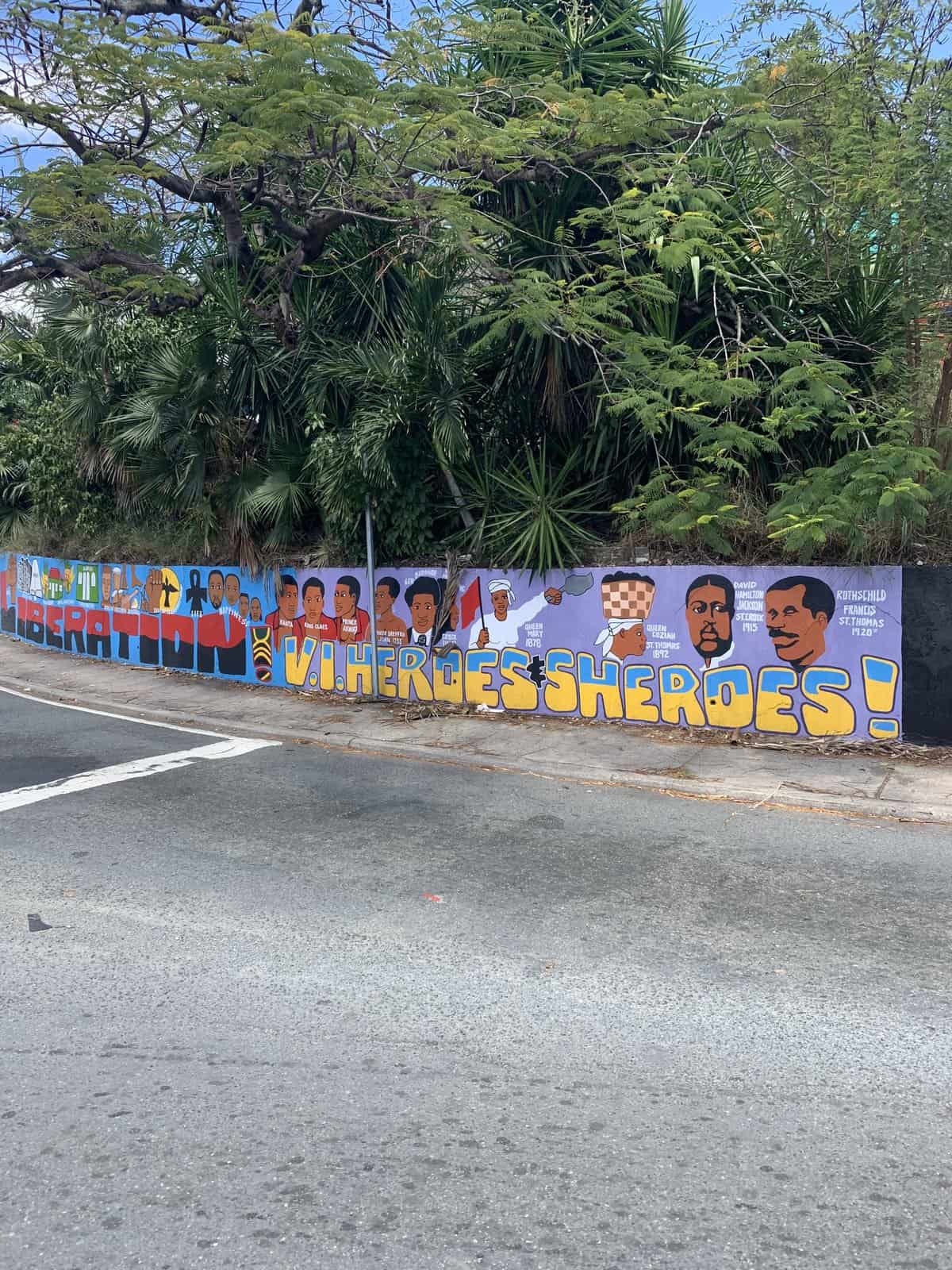
Hobbies can be world-schooling subjects too!
World-schooling offers plenty of personal time for your child to do something he/she enjoys, while on the road/water. It can serve as an excellent down time (which, of course, you are counting towards the elective).

Examples are – cooking, knitting, drawing, keeping a blog, scrap-booking, creative writing, coding, playing an instrument, etc.
Tip: Go through various hobbies, and see what the kids might be interested in. Our middle one is into sports, youngest – into engineering and science (our carry-on includes a telescope!). Our oldest is into crocheting. Crochet and knitting hooks ARE allowed in the carry-on!
PE and Sports
We have one kid, who will only do sports for the rest of his life, and two, who would rather never did anything related to physical activity… Talk about catering to different personalities.
A few physical activities that can easily bring in PE hours are hiking, swimming, mountain climbing and biking.
Apart from that – the entire family doing some sort of routine exercise every day (or every other day), also counts as PE. The problem is getting everyone to commit!
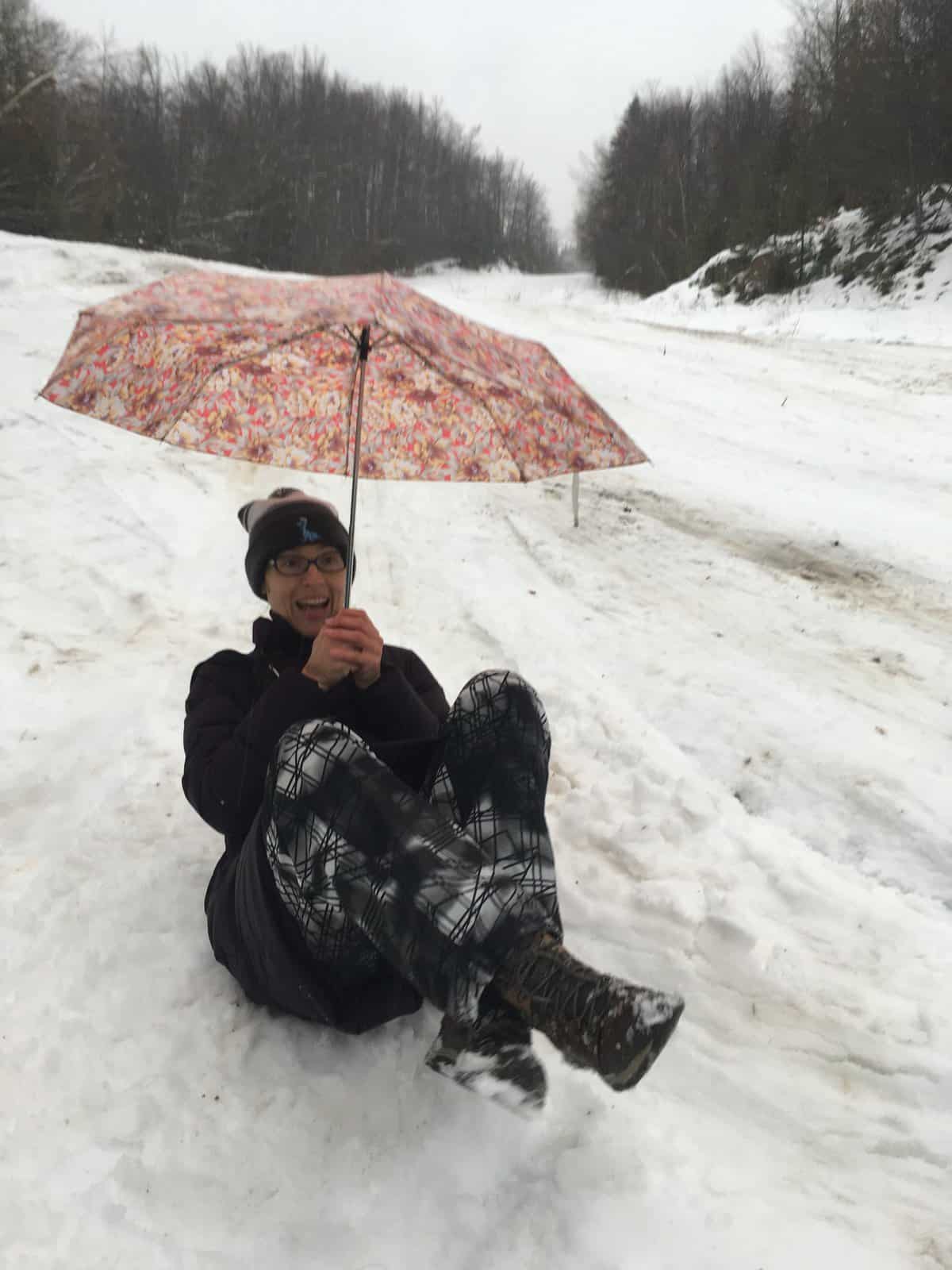
If you happen to be in a place for a bit longer, there are a couple of options you may want to explore. You can look for other worldschooler and quickly form a skiing, hiking, swimming group.
Tip: Contact the local homeschooling community and see what sports and activities might accommodate your child as a guest. We have done archery, fitness, soccer, folk dancing and biathlon – all on a temporary basis. Just ask!
Tech Ed
We use Khan Academy, Code.org, Power Point for various presentations, typing and research. All of our resources and courses are free.
Economics
We created two co-ops, a couple of years apart, following the book Whatever Happened to Penny Candy? by Richard Maybury. It comes with a study guide. The textbook is available Free as a PDF, as are most of the additional articles assigned in the Study Guide, purchased separately).
For all of our international participants, I assign the questions for discussions, and I have created Free Jeopardy Games for the terms.
Art and Music
We take the same approach towards art, as we do towards hobbies and sports. Any art-related hobby, with sufficient number of hours spent, and projects completed, can be counted towards art.
Many places you visit might have clay, drawing, weaving, etc., that you can sign up for. Assign some background research of that particular craft, a neat Power Point presentation and voila – you have worked towards your arts-and-craft credit.
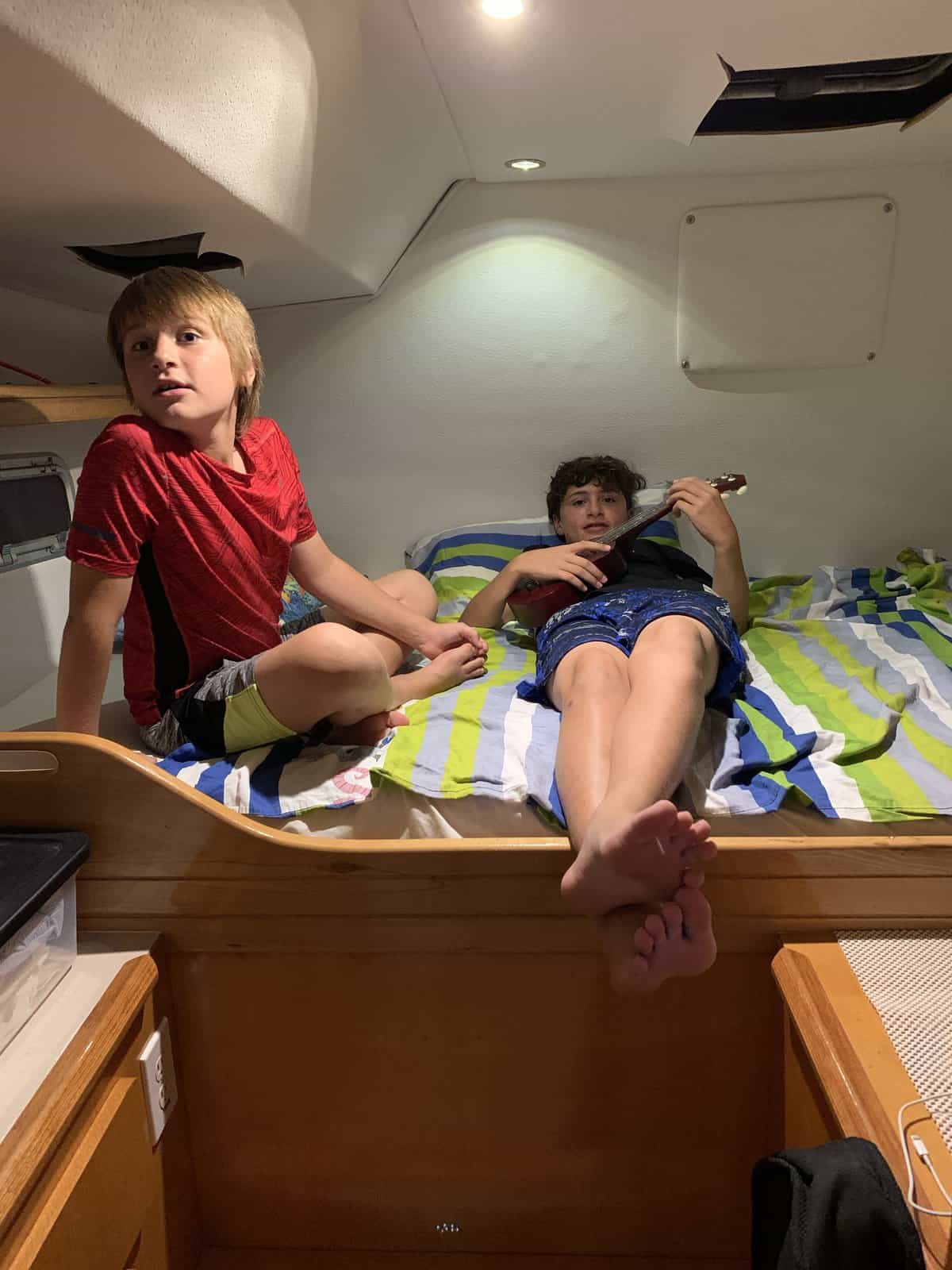
As far as music – carrying a musical instrument as you travel is a bit tricky. If your kids have interest in harmonica – that would be great, and light! We have played a ukulele and a guitar, while sailing.
Tip: Local folklore and dances are a no-brainer, while traveling. Keep an eye out for street festivals, concerts, even school concerts and presentations. These are either free, or very affordable!
Nature Journal is a two-in-one world-schooling subject!
While not a subject in itself, a nature journal can combine science and art. Especially for younger kids, but I made one for myself as well! As you travel to different countries (or regions within the same country), the pages of these journals will be a journey too!
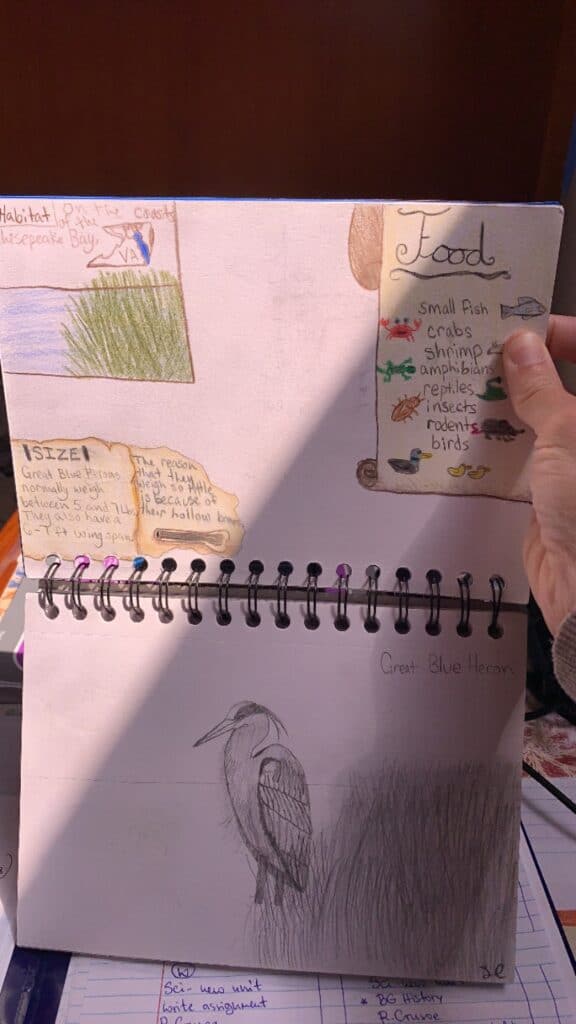
We love pocket size water paints. We have used ours for a long time! Or, you can buy a larger one to share, if you need to lighten up your load for flying.
Tip: For ease of travel, grab a few clipboards and a drawing pad with good quality paper. Tear pages off of it and use the clipboard as a hard base. Keep the drawings in a folder, or take pictures and discard.
Dual enrollment – great college practice and very travel-friendly
For some subjects, it can save time and money, if your high schooler takes a college class. They are often all online, a bit heavier in terms of material covered, but very travel-friendly, and can be quite fast-paced as well.
Arizona State University has the so-called Universal Learner Program. To take any class, all you need is some form of ID for your child and $25. Once your student has taken the class, you have a year to decide if you want to add the course as college credit and pay the higher price for it.
They also have a very helpful Facebook Group with many questions answered, including all of ours regarding high school credits.
Since we are looking at colleges and universities aboard, we just kept the high school credit on the transcript.
Volunteer for high school credit and for fun!
To be honest, the US has been the hardest place to just drop in and volunteer with a kid, on a short notice. There are just so many regulations and training involved, that while cruising the US east coast, we had little luck finding organizations.
Volunteering in foreign countries is much easier, there are plenty of opportunities, and you can easily do it with a child. If you go with your highschooler – these are precious volunteer hours!

There are even options to volunteer online – help update a website, write an article, visit a school and offer to help with conversational English, and so on.
Sophie has been doing online translations for a Wildlife rescue organization. It works great for volunteer credit and for help with her foreign language learning.
Tip: Keep in mind that volunteering may require the signature of a supervisor, or someone in charge, in order to validate the hours spent, so they can be entered on the high school transcript.
Work for the traveling teens means experience and cash.
Almost any hobby can be turned into a small business. Crafts will produce unique pieces, with a travel story behind each one. Shipping is tricky, but it is doable.
Keeping a blog and monetizing it, turns it into a business, which a highschooler can achieve with some adult help. There are a few examples of successful teen blogs on the web, including travel and homeschooling ones.
Our daughter teaches English in person and online and loves the independence that comes with the cash earned. And I love that her resume will contain English Teaching instead of Starbucks (nothing personal against Starbucks).
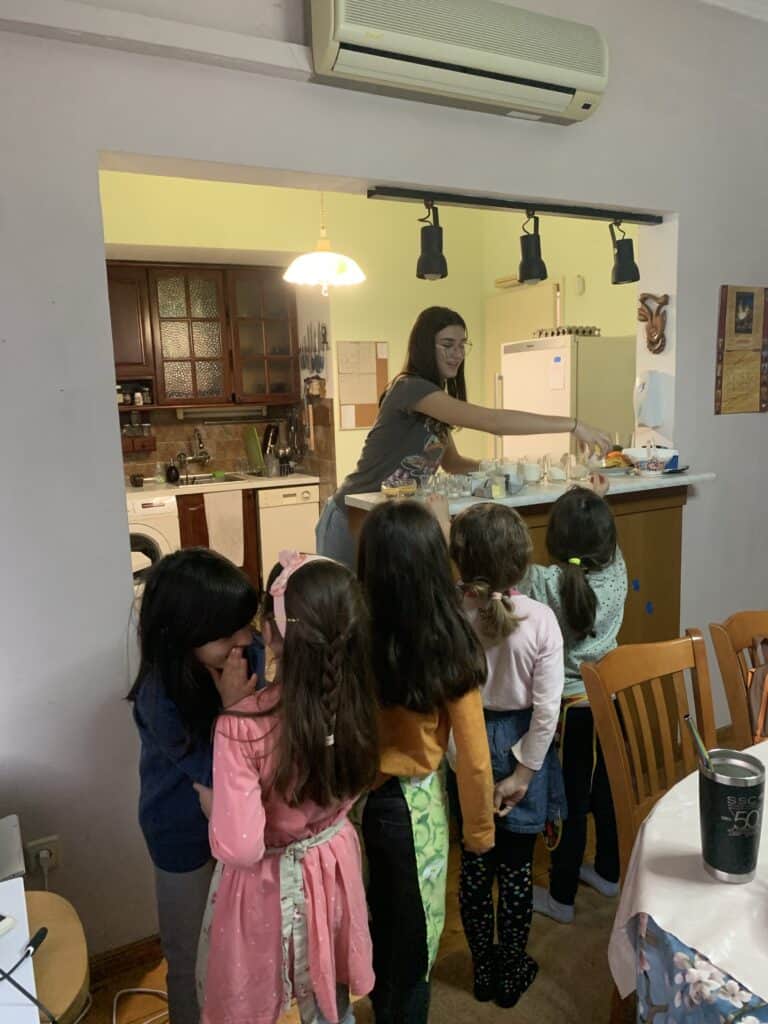
Co-ops while traveling or sailing – easier than you think!
If you are visiting a place with a high concentration of homeschoolers / world-schoolers, you can easily create a short online (or in-person) co-op. It can be a crafting class, a topic relevant to the place you are visiting, or another useful and interesting idea.
I have hosted and taught economics and biology co-ops online, via Zoom. Smaller class sizes make it easy to reschedule, due to traveling. These classes are quite easy to put together. We do not charge for them, because they make studying more enjoyable for our own kids.
In fact, we have an entire post on various socialization and educational activities, while on a sailboat. It contains lots of fun ideas and proves what an amazing community sailing and traveling families can create! Here is the link below.
Worldschooling and Socializing the Kids (How we do it on a Boat!)
Tip: Online co-ops with friends from your home-base community, will help them live even more vicariously through your travels, while allowing your kids to stay in touch with friends. Show videos and discuss your journey!
All of our World-schooling subjects organized in a table!
Apart from trying to make Google like my blog, I thrive in arranging everything into lists, tables and spreadsheets! So here are all of our homeschooling subjects and activities in a single table!
Our World-schooling Subjects and Curricula
| Core Subjects | Travel-friendly | Parent-involvement | Cost* | Buy used? | High School |
| Math Mammoth | yes | high | $43 | no | no |
| Mr. D Math Self-Paced | yes | low | $197 | no | yes |
| Supplement – Khan Academy | yes | low | Free | no | yes |
| Reading Amblesideonline | yes | moderate | Free | n/a | yes |
| Reading The Gutenberg Project | yes | moderate | free | n/a | yes |
| Easy Grammar – Daily Grams | somewhat | high | $30 | yes | yes |
| Grammar Edit Worksheets | yes | moderate | free | n/a | no |
| Spelling – Dictations | yes | high | Free | n/a | yes |
| Writing – IEW Level B Basic | somewhat | high | $169 | no | no |
| Writing – Journal | yes | low | $1 | n/a | yes |
| Allinonehomeschool | yes | low | Free | n/a | yes |
| English – St. Athanasius 2/week | yes | low | $430 | n/a | yes |
| Essay writing – online resources | yes | high | Free | yes | yes |
| General Science Apologia basic | no | moderate | $137 | yes | no |
| Apologia Biology Basic Set | no | low | $103 | yes | yes |
| Apologia Biology Lab Supplies | no | high | Varies | no | yes |
| ConceptualAcademy Chemistry | yes | low | $115 | n/a | yes |
| ConceptualAcademy Chem Lab | somewhat | moderate | Varies | n/a | yes |
| History / Geography via travels | yes | high | Free | n/a | yes |
| Story of the World book only | somewhat | moderate | $25 | yes | no |
| History –Streams of Civilizations | no | moderate | $35 | yes | yes |
| ASU for High School Credit | yes | low | $25 | n/a | yes |
| ASU for College Credit | yes | low | $425 | n/a | yes |
| Geography – Seterra | yes | low | Free | n/a | no |
| Electives | Travel-friendly | Parent-involvement | Cost | Buy used? | High School |
| Religion – Online Readings | yes | high | Free | n/a | yes |
| Religion – Be the Bee YouTube | yes | low | Free | n/a | no |
| Foreign Language – Online | yes | low | Varies | no | yes |
| Tech Ed – Khan Academy | yes | low | Free | n/a | yes |
| Coding – code.org | yes | low | Free | n/a | no |
| Typing – Dance Mat Typing | yes | low | Free | n/a | no |
| Economics – paper book | yes | moderate | Free | n/a | yes |
| Art – Nature Journal | yes | low | Varies | n/a | no |
| Art – Musical Instrument | no | low | Varies | no | yes |
| PE exercises | yes | moderate | Varies | n/a | yes |
| Hobby / craft | varies | low | Varies | n/a | yes |
| Skills | varies | high | Varies | n/a | yes |
| Volunteer | yes | moderate | Free | n/a | yes |
| Work | varies | low | Free | n/a | yes |
Here is a printable PDF of this Table.
This table has been created based on our five years of experience with these homeschooling subjects and their modification in order to fit our traveling lifestyle.
As you can see, world-schooling can be very affordable, as well as complete and well-rounded, even on the road / water.
I hope this post has inspired you to take the next step!
Remember, we are just an ordinary family, with no big secret – what we do, you can do too!
Other posts related to world-schooling
World-Schooling Curriculum – How to Homeschool, Travel and Relax!
World-schooling is Affordable (Which is why we do it)!
13 Reasons We Love World-Schooling in Bulgaria
Long-Term Traveling with Teens (Survival Manual)
Worldschooling and Socializing the Kids – How we do it on a Boat.
Our YouTube Episodes
Tired of reading?
Check out our YouTube episodes about sailing, traveling and homeschooling!

Wow! Thanks so much for this. It’s really helpful! I love following your family. We are Irish and are now living in Sao Miguel on the Azores for nearly a year. If you ever come here you are most welcome to visit us!!
Forgot to say I home educate our three aged 9, 14 & 16. We have a similar approach with essential subjects and electives ❤️
So you understand the chaos that comes with homeschooling and trying to follow some plan!
Our paths might cross some day, the kids are fairly close in age too!
Oh, that’s all I need – an invitation to a cool place 🙂
Thank you very much for your kind comment! My husband’s roots point to Ireland and I have always wanted to visit Ireland too, not too from the Azores, right 😉
We are currently in Bulgaria, sold the boat, still hard to believe and I am questioning our decision every other day. But the adventure continues, there is so much to see out there!